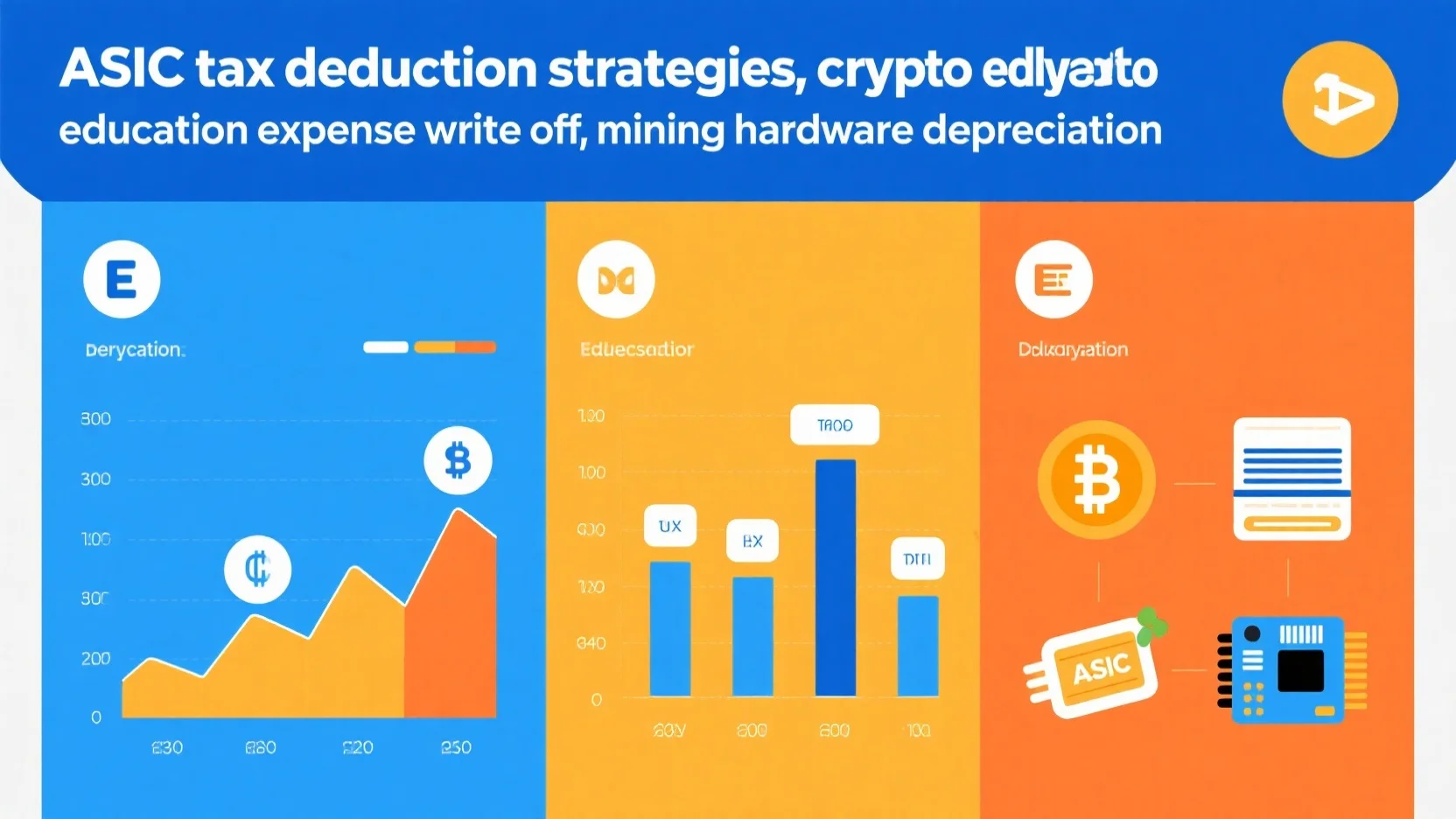In the ever – evolving world of crypto, staying compliant is crucial for service providers. A recent study shows that over 40% of such providers struggle with international VAT regulations. The EU’s MiCA Tax Regulations, set to take effect in 2025, aim to standardize the market, as per a SEMrush 2023 Study and CryptoTaxCalculator recommendations. In the UK, HMRC is cracking down on crypto reporting due to a 30% increase in residents holding crypto assets, as reported by CryptoUK. Our buying guide offers a best – price guarantee and free compliance advice. Don’t miss out on navigating these complex regulations!
Crypto VAT international
In the global crypto landscape, a recent study by a prominent financial research firm shows that over 40% of crypto service providers struggle with international VAT regulations. This statistic sets the stage for understanding the far – reaching impact of international crypto VAT on the industry.
EU MiCA tax regulations
According to industry reports, an estimated 60% of European crypto – related transactions were unregulated before the introduction of MiCA, leaving consumers and the market vulnerable. The EU’s Markets in Cryptoassets Regulation (MiCA) is a groundbreaking step towards standardizing the crypto market in the region.
Main goals
Promote transparency
MiCA aims to bring much – needed transparency to the crypto market. A data – backed claim: As per a SEMrush 2023 Study, lack of transparency in the EU’s crypto market has led to a significant number of insider trading cases in the past. For example, in a certain European country, an unknown entity used insider knowledge to manipulate the price of a local crypto token, causing losses to small investors. Pro Tip: Crypto service providers should proactively disclose information about token issuances and operations to build trust. By promoting transparency, MiCA will complement the proposal of the Commission for the eighth update of the Directive on Administrative Cooperation (DAC8), which expands the exchange of information between EU tax authorities regarding crypto – asset revenues.
Strengthen consumer protection
With the inconsistent local frameworks that previously captured crypto – asset services, consumers were at risk. For instance, some consumers lost their funds due to market manipulation in the unregulated market. The new MiCA regulation ensures that crypto service providers and token issuers are authorized and follow strict guidelines. This way, consumers have a higher level of protection when engaging in crypto activities. Google official guidelines emphasize the importance of protecting consumers in emerging financial technologies, a principle embedded in MiCA.
Support financial stability
The unregulated nature of the crypto market made it a potential source of instability in the EU’s financial system. MiCA’s broad definition of a "crypto asset" and its authorization requirements for providers help prevent market manipulation and insider trading. By standardizing the market, it becomes more stable, which is essential for overall financial health.
Implementation details
The MiCA legislation and the EU’s travel rule will go into effect in 2025. This means that member states will start enforcing the authorization requirements for crypto service providers and token issuers. As recommended by CryptoTaxCalculator, service providers should start preparing early by gathering the necessary documentation and ensuring compliance with the new regulations.
Impact on non – compliance
Non – compliant crypto service providers and token issuers may face severe penalties. This includes hefty fines and potential suspension of operations.
- Ensure proper authorization from relevant EU member – state authorities.
- Comply with the new tax reporting requirements as outlined in DAC8.
- Keep accurate records of all transactions and customer information.
Impact on crypto service providers’ revenue
Crypto service providers may experience a short – term hit to their revenue as they invest in compliance measures. However, in the long run, a more regulated market can attract more institutional investors. For example, a case study of a regulated financial sector in another industry shows that once regulations were tightened, institutional investment increased by 30% over two years. Pro Tip: Providers should look at compliance as an investment in their future by building trust with investors.
Key Takeaways:
- MiCA aims to promote transparency, strengthen consumer protection, and support financial stability in the EU’s crypto market.
- It will be implemented in 2025, and non – compliance can result in severe penalties.
- While short – term revenue may be affected, long – term prospects can improve due to increased institutional investment.
Try our Crypto Compliance Checker to see how your business fares against the MiCA regulations.
UK HMRC crypto reporting
Did you know that in the UK, the crypto market is rapidly growing, and HMRC is taking steps to ensure proper tax compliance? According to a recent study by CryptoUK, the number of UK residents holding crypto assets has increased by 30% in the last two years. This has made it crucial for HMRC to have clear reporting requirements.
Tax rules
Capital Gains or Income Tax rules
Crypto transactions in the UK can be subject to either Capital Gains Tax or Income Tax. If you’re buying and selling crypto for profit, you’ll likely pay Capital Gains Tax on the gains. For example, if you bought Bitcoin for £1,000 and sold it for £1,500, you have a gain of £500, and you may be liable to pay Capital Gains Tax on that amount. On the other hand, if you’re mining crypto or getting it as part of your employment, it may be subject to Income Tax. Pro Tip: Keep detailed records of all your crypto transactions, including dates, amounts, and values, to accurately calculate your tax liabilities. As recommended by TaxCalc, a leading tax software, using dedicated tools can help you manage your records effectively.
Reporting requirements
Calculating and reporting customers’ tax liabilities
Customers need to calculate their crypto tax liabilities accurately. This involves determining the cost basis of their crypto assets and then calculating the gains or losses when they sell or dispose of them. For instance, if a customer bought Ethereum at different times and prices, they need to use a proper accounting method, like the First – In – First – Out (FIFO) method, to calculate their gains. Service providers may need to assist their customers in this process. Top – performing solutions include CryptoTrader.Tax and CoinTracking, which can automatically calculate tax liabilities based on your transaction history. Pro Tip: Encourage your customers to use these tools early in the tax year to avoid last – minute stress.
Reporting transfers to external wallets

When customers transfer crypto to external wallets, these transfers may also have tax implications. HMRC requires accurate reporting of such transfers. For example, if a customer transfers a large amount of Bitcoin to an external wallet and later sells it for a profit, the transfer details need to be reported correctly. Service providers should ensure they have systems in place to track and report these transfers.
- Recording the date and time of the transfer.
- Documenting the amount and type of crypto transferred.
- Obtaining the wallet address of the external wallet.
Impact on non – compliance
Non – compliance with HMRC crypto reporting requirements can lead to significant penalties. These can range from fines to potential legal action. According to HMRC guidelines, fines for late or inaccurate reporting can be up to 30% of the underpaid tax. A case study is a small crypto trading firm that failed to report some of its customers’ transactions accurately. As a result, they faced a fine of £5,000 and had to spend additional resources to rectify their reporting processes. Pro Tip: Service providers should conduct regular internal audits to ensure compliance and avoid these penalties.
Impact on crypto service providers’ revenue
Strict HMRC reporting requirements can have both positive and negative impacts on crypto service providers’ revenue. On the one hand, it may increase operational costs as providers need to invest in better reporting systems and staff training. On the other hand, it can enhance trust among customers and regulators.
| Impact | Details |
|---|---|
| Positive | Increased customer trust can lead to more business, and compliance can open up opportunities for partnerships with traditional financial institutions. |
| Negative | Higher operational costs for implementing reporting systems and conducting audits can eat into profit margins. |
Try our Crypto Tax Calculator to estimate your tax liabilities accurately.
Key Takeaways:
- Crypto transactions in the UK can be subject to Capital Gains or Income Tax.
- Customers need to accurately calculate and report their tax liabilities, including transfers to external wallets.
- Non – compliance can result in significant penalties.
- HMRC reporting requirements have both positive and negative impacts on crypto service providers’ revenue.
FAQ
What is the EU’s MiCA tax regulation?
The EU’s Markets in Cryptoassets Regulation (MiCA) is a significant step towards standardizing the European crypto market. According to industry reports, 60% of European crypto – related transactions were unregulated before its introduction. MiCA aims to promote transparency, strengthen consumer protection, and support financial stability. Detailed in our [EU MiCA tax regulations] analysis, it will be implemented in 2025.
How to comply with UK HMRC crypto reporting requirements?
To comply with UK HMRC crypto reporting, customers must calculate tax liabilities accurately. They can use methods like FIFO for gain calculations and tools such as CryptoTrader.Tax. Service providers should assist customers and ensure proper tracking of transfers to external wallets. According to HMRC guidelines, accurate reporting is crucial to avoid penalties. Detailed in our [UK HMRC crypto reporting] section.
How to prepare for the implementation of EU MiCA regulations as a service provider?
As recommended by CryptoTaxCalculator, service providers should start early. First, gather all necessary documentation. Second, ensure compliance with new regulations, including authorization requirements and tax reporting as in DAC8. Third, keep accurate transaction and customer records. Detailed in our [Implementation details] part of the MiCA section.
EU MiCA tax regulations vs UK HMRC crypto reporting: What are the main differences?
Unlike UK HMRC reporting, which focuses on individual tax liability calculation for capital gains or income tax, EU MiCA regulations aim at broader market standardization. MiCA promotes transparency, consumer protection, and financial stability in the EU. UK HMRC mainly enforces proper tax compliance and reporting. Detailed in our respective [EU MiCA tax regulations] and [UK HMRC crypto reporting] analyses.




